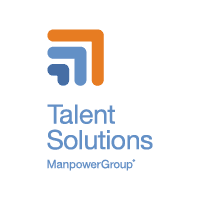Transforming Digital Workspace Environments
Experis will help your organisation implement and maintain effective and secure digital workspace environments through desktop engineering and skilled end-user support, which is essential for business performance in the new world of work.
Digital Workspace Services
Our suite of services supports building and maintaining a modern digital workspace.
Through professional resourcing and our Experis Academy, we get your workforce ready for digital transformation. We attract and match talent with in-demand skills and provide critical training for roles such as Desktop Engineering and End-User Services.
We provide unparalleled end-to-end support across the full technology lifecycle including solutions for new technology rollouts, desktop engineering, service desk and on-site services. We assist in the planning, implementation and follow-up for your Digital Workspace projects.
We support in the migration, adoption and rollout of new technology for devices, applications and platforms. Product support is available to any internal or external end-user.
Experienced in the creation, integration and industrialisation of high-quality desktop environments, we have the in-demand skills needed to support future market trends in SCCM, MDT and Windows Autopilot.
Available 24/7/365, your digital workspace end-user has their devices, applications, network and connectivity supported through our multilingual services. Our Service Desk offerings can be deployed on- or off-site with Experis delivery centres or work from home deliveries like Experis HomeDesk. The Experis Service Desk solutions are ITIL based single point-of-contact solutions focused on top-notch customer service to supported end-users.
With end-to-end global IT Field Service, we provide continuous, on-demand and project-based coverage. The Experis IT Field Services are ITIL-based and support onsite customers globally with Service Request resolution, incident resolution, IMAC (install, move, add, change) resolution, device maintenance, and hands and eyes services. We provide our customers with complete project support for migrations and refreshes as well as bid processes. Our global project management office coordinates with local service centres to manage customer instances where needed.
Our Services
-

Professional Resourcing
Finding the right talent with in-demand skills and expertise to fill your most critical roles.
-

IT Consulting
Leading digital transformation practices through our network of consultants, experts and partners.
-

Project Services
Providing business-critical IT project expertise and implementation of new solutions.
-

Managed Services
Managing IT resourcing, application maintenance and operations so you can focus on your core business.
Add the tag: "digital-workspace" to the blogs you want to display here..
-

Tech Talent 2025: Trends Reshaping the Workforce
By: Victoria Allwright, IT Services Director, Experis UKIn an era where technology is evolving at an unprecedented pace, understanding the trends that will shape the workforce is crucial for C-Suite leaders.According to the World Economic Forum’s Future of Jobs Report 2023, 44% of workers’ skills will be disrupted by 2027, with AI and automation driving the most significant changes. Furthermore, McKinsey estimates that by 2030, demand for technological skills will increase by 55% compared to 2020 levels.Last week I had the pleasure of hosting our Tech Talent 2025 – Trends Reshaping the Workforce webinar alongside industry experts, discussing the future of tech talent and how organisations can stay ahead of the curve.Here’s an overview of the key trends, challenges and strategies that will define the tech talent landscape in the coming years.Key trends from 2024Technology adoption:AI & automation: 75% of organisations have adopted some form of AI-driven workforce automation, highlighting the critical role of AI in enhancing productivity and efficiency (Gartner, 2024).Remote and hybrid work:Workplace flexibility: According to a 2024 McKinsey report, 60% of companies reported an increase in hybrid work adoption, with 40% of tech firms shifting to fully remote operations. This shift underscores the importance of flexible work arrangements in attracting and retaining top talent.Skills demand:In-demand skills: Cybersecurity, AI/ML engineering, and cloud computing remained the top three most sought-after skills. Despite economic challenges, global tech employment grew by 6.2% in 2024, demonstrating the sector’s resilience. (LinkedIn Talent Report, 2024; CompTIA, 2024).Looking ahead to 2025The future of tech talent is set to be shaped by emerging technologies such as generative AI, quantum computing and advanced automation. These innovations will create new job roles and demand new skills, making it imperative for organisations to adapt their talent strategies accordingly.To help bring our conversation to life I was joined by an incredible panel of experts, who each brought unique insights into how technology is redefining talent acquisition, workforce planning, and organisational agility across four key areas.Laura Foster: Associate Director for Technology and Innovation at techUKReskilling imperative:“The innovation gap is ultimately a reskilling gap. Businesses must invest in long-term reskilling initiatives to ensure their workforce remains competitive. Tech companies like IBM are leading the way by committing to train millions in AI skills.”Furthermore, PwC’s Workforce of the Future study reveals that 79% of CEOs are concerned about the availability of key skills, reinforcing the urgency for reskilling efforts.Robert Enright: Global Leader for Advisory Services in Intelligent Talent Operations at IBMAI integration:”There is a need for organisations to balance AI investment with building a capable workforce, applying employee and outcome-centric approaches to successfully integrate AI into the workforce.”Karina Arteaga: Tech Strategy Leader with experience at Meta and VMware.Team transformation:“AI is causing significant shifts in team structures and activities. In the future, upskilling and defining activities suitable for AI versus human talent to maximise productivity and innovation will become increasingly important.”Workforce transformation strategiesTo stay competitive, organisations must embrace workforce transformation strategies that prioritise diversity, inclusion, and continuous learning:Diversity and inclusion: Fostering a sense of belonging and unleashing creativity are key to retaining tech talent. Diverse teams are 36% more likely to outperform their competitors and make better decisions 87% of the time.HR involvement: HR must be involved in shaping business strategies to ensure workforce planning aligns with evolving skill requirements. This collaboration is essential for creating a future-ready workforce.Human-centric workforce planningMaintaining a human-centric approach to workforce planning is crucial for leveraging AI and automation responsibly:Job redesign: Real transformation happens when jobs are redesigned to create value for both employees and customers. This approach ensures that AI integration enhances rather than disrupts the workforce.Governance and structure: Effective governance and structured implementation of AI are necessary to address the challenges and opportunities presented by emerging technologies.The future of AI & recruitmentThe recruitment process for tech talent is evolving, with a shift towards agile, data-driven and skills-focused approaches:AI in recruitment: While AI for selection and sourcing is often oversold, its true value lies in shaping onboarding, learning and career pathways. Organisations must adopt agile recruitment models to stay ahead in the competitive tech talent market.Deep tech talent development: Organisations should build relationships with educational institutions to develop a pipeline of talent for deep tech roles. Flexibility in hiring and career pathways is essential for attracting and retaining top talent.Leadership’s role in tech strategyC-Suite leaders play a pivotal role in crafting effective technology strategies that drive workforce transformation:Adaptability and problem-solving: Leadership focus has shifted towards adaptability and problem-solving skills. Continuous learning and flexibility are essential for navigating the rapidly changing tech landscape.Strategic planning: Leaders must think strategically about the roles and skills needed in the future, ensuring their organisations are prepared for the challenges and opportunities ahead.ConclusionAs we look towards 2025, the tech talent landscape will be defined by rapid technological advancements and evolving workforce dynamics. Leaders must prioritise reskilling, embrace diversity and inclusion and adopt agile recruitment and workforce planning strategies to stay competitive. By fostering a culture of continuous learning and adaptability, organisations can ensure they are well-positioned to thrive in the future of work.Experis is here to help you navigate these changes, providing the skilled professionals and workforce solutions needed to drive digital transformation, optimise performance and future-proof your organisation. Let’s work together to build a workforce that’s ready for the challenges and opportunities ahead!Contact us today
-

Tech Talent 2025: Trends Reshaping the Workforce
By: Victoria Allwright, IT Services Director, Experis UKIn an era where technology is evolving at an unprecedented pace, understanding the trends that will shape the workforce is crucial for C-Suite leaders.According to the World Economic Forum’s Future of Jobs Report 2023, 44% of workers’ skills will be disrupted by 2027, with AI and automation driving the most significant changes. Furthermore, McKinsey estimates that by 2030, demand for technological skills will increase by 55% compared to 2020 levels.Last week I had the pleasure of hosting our Tech Talent 2025 – Trends Reshaping the Workforce webinar alongside industry experts, discussing the future of tech talent and how organisations can stay ahead of the curve.Here’s an overview of the key trends, challenges and strategies that will define the tech talent landscape in the coming years.Key trends from 2024Technology adoption:AI & automation: 75% of organisations have adopted some form of AI-driven workforce automation, highlighting the critical role of AI in enhancing productivity and efficiency (Gartner, 2024).Remote and hybrid work:Workplace flexibility: According to a 2024 McKinsey report, 60% of companies reported an increase in hybrid work adoption, with 40% of tech firms shifting to fully remote operations. This shift underscores the importance of flexible work arrangements in attracting and retaining top talent.Skills demand:In-demand skills: Cybersecurity, AI/ML engineering, and cloud computing remained the top three most sought-after skills. Despite economic challenges, global tech employment grew by 6.2% in 2024, demonstrating the sector’s resilience. (LinkedIn Talent Report, 2024; CompTIA, 2024).Looking ahead to 2025The future of tech talent is set to be shaped by emerging technologies such as generative AI, quantum computing and advanced automation. These innovations will create new job roles and demand new skills, making it imperative for organisations to adapt their talent strategies accordingly.To help bring our conversation to life I was joined by an incredible panel of experts, who each brought unique insights into how technology is redefining talent acquisition, workforce planning, and organisational agility across four key areas.Laura Foster: Associate Director for Technology and Innovation at techUKReskilling imperative:“The innovation gap is ultimately a reskilling gap. Businesses must invest in long-term reskilling initiatives to ensure their workforce remains competitive. Tech companies like IBM are leading the way by committing to train millions in AI skills.”Furthermore, PwC’s Workforce of the Future study reveals that 79% of CEOs are concerned about the availability of key skills, reinforcing the urgency for reskilling efforts.Robert Enright: Global Leader for Advisory Services in Intelligent Talent Operations at IBMAI integration:”There is a need for organisations to balance AI investment with building a capable workforce, applying employee and outcome-centric approaches to successfully integrate AI into the workforce.”Karina Arteaga: Tech Strategy Leader with experience at Meta and VMware.Team transformation:“AI is causing significant shifts in team structures and activities. In the future, upskilling and defining activities suitable for AI versus human talent to maximise productivity and innovation will become increasingly important.”Workforce transformation strategiesTo stay competitive, organisations must embrace workforce transformation strategies that prioritise diversity, inclusion, and continuous learning:Diversity and inclusion: Fostering a sense of belonging and unleashing creativity are key to retaining tech talent. Diverse teams are 36% more likely to outperform their competitors and make better decisions 87% of the time.HR involvement: HR must be involved in shaping business strategies to ensure workforce planning aligns with evolving skill requirements. This collaboration is essential for creating a future-ready workforce.Human-centric workforce planningMaintaining a human-centric approach to workforce planning is crucial for leveraging AI and automation responsibly:Job redesign: Real transformation happens when jobs are redesigned to create value for both employees and customers. This approach ensures that AI integration enhances rather than disrupts the workforce.Governance and structure: Effective governance and structured implementation of AI are necessary to address the challenges and opportunities presented by emerging technologies.The future of AI & recruitmentThe recruitment process for tech talent is evolving, with a shift towards agile, data-driven and skills-focused approaches:AI in recruitment: While AI for selection and sourcing is often oversold, its true value lies in shaping onboarding, learning and career pathways. Organisations must adopt agile recruitment models to stay ahead in the competitive tech talent market.Deep tech talent development: Organisations should build relationships with educational institutions to develop a pipeline of talent for deep tech roles. Flexibility in hiring and career pathways is essential for attracting and retaining top talent.Leadership’s role in tech strategyC-Suite leaders play a pivotal role in crafting effective technology strategies that drive workforce transformation:Adaptability and problem-solving: Leadership focus has shifted towards adaptability and problem-solving skills. Continuous learning and flexibility are essential for navigating the rapidly changing tech landscape.Strategic planning: Leaders must think strategically about the roles and skills needed in the future, ensuring their organisations are prepared for the challenges and opportunities ahead.ConclusionAs we look towards 2025, the tech talent landscape will be defined by rapid technological advancements and evolving workforce dynamics. Leaders must prioritise reskilling, embrace diversity and inclusion and adopt agile recruitment and workforce planning strategies to stay competitive. By fostering a culture of continuous learning and adaptability, organisations can ensure they are well-positioned to thrive in the future of work.Experis is here to help you navigate these changes, providing the skilled professionals and workforce solutions needed to drive digital transformation, optimise performance and future-proof your organisation. Let’s work together to build a workforce that’s ready for the challenges and opportunities ahead!Contact us today
-

What digital businesses look like in 2025: A new era of transformation
By: Rahul Kumar, Director of Solutions, Experis EuropeIn 2025, digital transformation has evolved from a tactical initiative to a strategic imperative. Today, it is the key differentiator for businesses striving to remain competitive and resilient in a fast-changing market. Yet, many leadership teams still struggle to truly understand what it means to be a digital business. Digital initiatives often remain fragmented, with companies launching mobile apps, building omnichannel capabilities, or establishing separate digital units. While these steps are important, they don’t fully unlock the potential of digital transformation.True digital businesses aren’t just adopting digital technologies; they are reengineering their entire way of operating. This means embedding a digital-first culture, developing data-driven strategies, and creating agile, adaptive organisations that respond rapidly to market shifts, customer needs, and technological advancements. This holistic approach is the only way to fully leverage digital tools for competitive advantage.In this article, we’ll explore how digital transformation is reshaping a business—strategy, products, customer experience, operations, and culture. These changes are driven by emerging technologies, and they offer a blueprint for businesses looking to lead in the digital age.Business strategy: Revolutionising decision-making and executionIn 2025, strategic decision-making is more data-driven, agile, and predictive than ever before. AI, machine learning, and advanced analytics allow businesses to anticipate market dynamics, optimise strategies, and react in real time. The most successful digital businesses are those that embed data analytics into every facet of their strategy.Take Nike, which has integrated data-driven decision-makinginto its core strategy. By analysing vast amounts of data from its Nike Training Club and Nike Run Club apps, Nike not only enhances customer engagement but also gains insights into emerging fitness trends, allowing the company to make proactive decisions on product development and market expansion. This AI-driven ecosystemhas allowed Nike to personalise experiences and align its strategy with real-time customer needs.Another example is Tesla, which uses AI-powered insightsto inform its strategy. Through over-the-air software updates, Tesla continuously adapts its vehicles, anticipating customer demands and regulatory changes. Tesla’s ability to collect real-time data from vehicles and transform it into actionable insights allows the company to adjust its strategy quickly, enabling rapid innovation and maintaining a competitive edge.These examples underscore the importance of real-time data and AI tools in shaping strategy, helping businesses make informed decisions faster and with greater accuracy.Products/services: Accelerating innovation with AI and collaborationIn 2025, product innovation is driven not only by customer feedback but also by emerging technologies like AI,3D printing, IoT, and blockchain. The ability to collaborate with customers and partners, combined with these technologies, is allowing businesses to innovate faster and with more precision.For instance, Apple has embraced augmented reality with its Apple Vision Pro headset, revolutionising how consumers interact with digital content. By integrating AI algorithms and IoT devices, Apple creates personalised experiences that enhance user engagement and open new avenues for product innovation. Similarly, Amazon has pushed boundaries with its Prime Air drone delivery system, using machine learning and robotics to streamline last-mile delivery, reducing costs and improving efficiency.Meanwhile, BMW has made strides with 3D printing in manufacturing and IoT sensors in vehicles. These innovations allow the company to rapidly prototype new products, customise offerings based on customer preferences, and ensure real-time monitoring of product performance. BMW’s use of AI in predictive maintenance also enables the company to enhance the customer experience by proactively addressing potential vehicle issues before they become problems.Through these technological advancements, companies are accelerating time-to-market and delivering innovative products that meet evolving customer needs.Customer experience: Delivering hyper-personalisation across touchpointsThe demand for seamless, personalised customer experiences continues to grow. In 2025, hyper-personalisation is no longer a luxury—it’s a strategic necessity. Leveraging AI, machine learning, and advanced analytics, businesses can now anticipate customer needs at every touchpoint and deliver tailored experiences that drive loyalty.Take Starbucks, for example. Through the Starbucks Rewards app, the company uses AI-driven personalisationto offer customers unique rewards, promotions, and product recommendations based on their individual behaviours and preferences. This creates a truly personalised experience that enhances customer satisfaction and drives engagement.Similarly, Sephora has revolutionised the beauty industry with its AR-based try-on feature. By combining AI-driven beauty recommendations with virtual testing tools, Sephora has made the shopping experience more interactive and customer-centric. Customers can receive tailored advice, test products virtually, and make informed purchases—all from the convenience of their devices.The use of real-time data and AI in personalising customer interactions is one of the key drivers of brand loyalty in 2025.Operations: Enabling real-time monitoring and automationIn 2025, operational efficiency is no longer solely about cost-cutting; it’s about leveraging digital technologies to create more agile, responsive, and scalable operations. IoT, AI, and predictive analytics enable businesses to monitor and optimise every aspect of their operations, from supply chains to production.Unilever has embraced AI-powered supply chain management and IoT sensorsto optimise production schedules, forecast demand, and mitigate disruptions in real time. By using predictive analytics to anticipate supply chain bottlenecks, Unilever can adjust operations to ensure smoother logistics and reduce waste, all while improving sustainability. These initiatives are part of Unilever’s broader strategy to use technology to streamline operations and enhance supply chain resilience in an increasingly unpredictable market.Similarly, BMW has implemented IoT sensors in its manufacturing plants, enabling real-time performance monitoring of equipment. By using AI-driven predictive maintenance, BMW can prevent machine failures, ensuring that operations remain efficient and consistent.These automated and adaptive systems allow businesses to respond to external shocks (such as supply chain disruptions or sudden changes in demand) with greater agility and less downtime.Organisation & culture: Empowering a digital-first workforceA true digital business is one that fosters a digital-first culture, empowering employees to innovate, experiment, and adapt rapidly to changes. Strategic leaders understand that the success of digital transformation is dependent on more than just the technology—it’s about creating an organizational culture that embraces change, encourages collaboration, and nurtures continuous learning.Spotify is a prime example of a company that has built an agile, digital-first culture. With its squad-based organisational model, Spotify empowers cross-functional teams to move quickly and innovate without being encumbered by traditional hierarchical structures. This approach enables Spotify to experiment with new features and engage deeply with its user base, driving continuous improvement and innovation. (Business Insider, “Spotify’s Agile Organisational Structure and How it Drives Innovation,” 2025)At Google, Project Aristotle uses data-driven insightsto optimise team dynamics and collaboration, ensuring that employees are empowered to share ideas, take risks, and innovate. Google’s organisational agility enables it to quickly respond to market changes and technological advances, maintaining its leadership in the digital space.By fostering a culture of psychological safety and empowerment, businesses can harness the full potential of their workforce and drive sustained innovation.Technology: Empowering agility, scalability and efficiencyTechnology in 2025 is more than just an enabler—it’s the backbone that supports a business’s agility, scalability, and efficiency. Technologies like cloud computing, AI, APIs, and microservices are enabling businesses to quickly integrate, scale, and innovate.Cloud platforms such as AWS and Google Cloud provide businesses with the flexibility to scale their operations quickly, without the need for massive upfront capital investment. This scalability is essential for companies looking to stay competitive in an increasingly globalised, digital-first economy.The rise of APIs and microservices has also changed how businesses integrate with external partners and platforms. Modular architectures allow businesses to quickly build, test, and deploy new products and services. This agile approach ensures that companies can adapt to changing customer needs and market conditions with minimal delays.However, as businesses adopt these technologies, they must also be aware of the challenges associated with cybersecurity, data privacy regulations, and the growing skills gap in tech talent. Strategic leaders must invest in cyber resilience, prioritise data security, and focus on developing a tech-savvy workforce to mitigate these risks.Conclusion: Embracing a digital-first futureIn conclusion, to thrive in 2025, businesses must adopt a digital-first approach that goes beyond technology. It’s about creating a new organisational mindset, empowering a digital-first culture, and leveraging cutting-edge technologies to drive innovation, agility, and operational excellence. The digital businesses that succeed in this era will be those that can continuously evolve, adapt to changing market dynamics, and stay ahead of emerging trends.By integrating AI, IoT, cloud technologies, and real-time data analytics into every aspect of their business operations, companies can position themselves for long-term success and leadership in the digital era. However, success also requires a strategic focus on overcoming challenges such as data security, talent management, and global disruptions.The future is digital, and the businesses that lead will be those that embrace technology not just as a tool, but as a strategic asset that enables innovation and competitive advantage.Ready for the next steps in transforming your digital business? As a global leader in IT professional resourcing, project services and managed services, Experis enables organisations to cultivate individuals and teams to succeed in a digital age. Get in touch to let us help you solve your workforce challenges.
Digital Workspace jobs
-
Contract
CNI CMBD Engineer
Wokingham
Posted March 5, 2026
Read more -
Contract
Java Developer
City of London
Posted March 4, 2026
Read more -
Permanent
Platform Operations Engineer
London
Posted March 4, 2026
Read more -
Contract
Performance Analyst - Digital Agents
Worthing
Posted March 3, 2026
Read more -
Contract
Project Manager Global Web Activations
London
Posted March 3, 2026
Read more -
Contract
Data Analyst
Edinburgh
Posted March 3, 2026
Read more -
Contract
Tanium Tech SME
Knutsford
Posted March 3, 2026
Read more -
Contract
Tanium Cyops Resources
Knutsford
Posted March 3, 2026
Read more -
Contract
User Researcher
Worthing
Posted March 3, 2026
Read more


INSIGHTS & INTELLIGENCE
Experis leverages internal research and deep industry expertise to help organisations succeed in a rapidly evolving digital world.
In today's world of work, companies must plan for unpredictability and need to be built for change. With technological disruption and geopolitical uncertainty continuing at pace, we can be certain that further change lies ahead. Keep up-to-date with the latest in the IT world of work with insights from Experis.

Get in Touch
See how Experis can deliver the most powerful combination of digital solutions to drive business performance.


